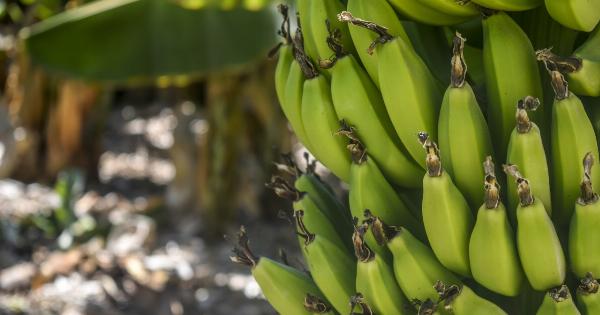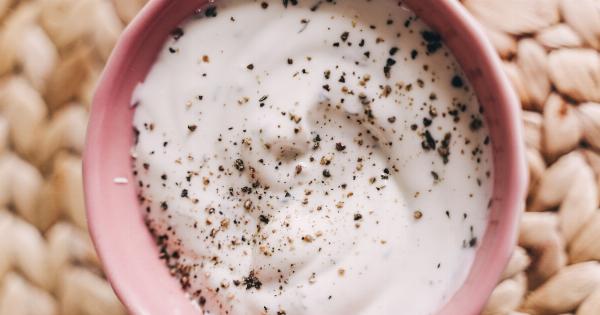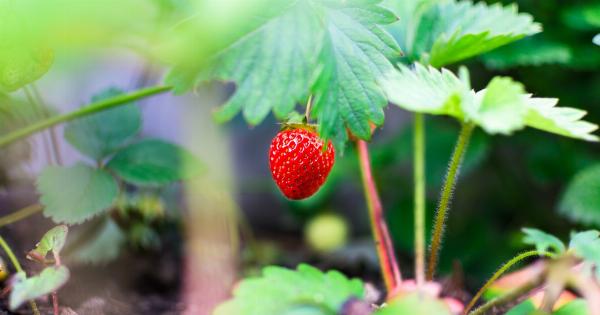Potassium is an essential mineral that plays a vital role in maintaining overall health. It is classified as an electrolyte because it helps conduct electrical impulses in the body.
Potassium also works in tandem with sodium to maintain fluid balance, nerve function, and muscle contractions. In this article, we will delve deeper into the power of potassium, understanding its sources, and exploring its various functions in the body.
Sources of Potassium
Potassium is naturally found in a variety of foods. Here are some excellent sources of potassium:.
1. Bananas
Bananas are perhaps one of the most well-known sources of potassium. They are not only delicious but also packed with this essential mineral. A medium-sized banana can provide around 400-450 mg of potassium.
2. Avocados
Avocados are not only a trendy food item but are also incredibly nutritious. They are rich in healthy fats, vitamins, and minerals, including potassium. A medium-sized avocado contains approximately 600-700 mg of potassium.
3. Spinach
Popeye knew what he was doing when he emphasized the importance of eating spinach! This leafy green is not only low in calories but is also a fantastic source of potassium. A cup of cooked spinach provides around 800-850 mg of potassium.
4. Sweet Potatoes
Sweet potatoes are a delicious and nutritious alternative to regular potatoes. They are high in fiber, vitamins, and minerals, including potassium. A medium-sized sweet potato contains approximately 450-500 mg of potassium.
5. Beans and Legumes
Beans and legumes, such as lentils, chickpeas, and black beans, are not only excellent sources of plant-based protein but also rich in potassium. A cup of cooked beans can provide around 400-500 mg of potassium.
6. Yogurt
Yogurt is a popular dairy product that is not only rich in calcium but also a good source of potassium. A cup of plain yogurt typically contains 400-500 mg of potassium.
7. Salmon
Salmon is not only a delicious fish but also a nutrient powerhouse. It is an excellent source of omega-3 fatty acids and contains a good amount of potassium. A 3-ounce serving of salmon provides around 450-500 mg of potassium.
8. Coconut Water
Coconut water has gained popularity as a natural hydrating beverage. It is not only refreshing but also an excellent source of potassium. An 8-ounce serving of coconut water contains approximately 450-500 mg of potassium.
Functions of Potassium in the Body
Potassium performs numerous critical functions in the body. Let’s explore some of its key roles:.
1. Fluid Balance
Potassium, along with sodium, helps maintain the body’s fluid balance. It regulates the amount of water inside and outside the cells, ensuring proper hydration and optimal cellular function.
2. Nerve Function
Potassium is vital for the proper functioning of nerves. It helps transmit electrical impulses throughout the body, allowing for smooth communication between the brain and other parts of the body.
3. Muscle Contractions
Potassium plays a crucial role in muscle contractions. It helps regulate muscle activity and coordination, including the contractions of the heart muscle. Adequate potassium levels promote healthy muscle function.
4. Blood Pressure Regulation
Consuming potassium-rich foods has been linked to lower blood pressure levels. Potassium helps relax blood vessel walls, allowing for improved blood flow and reduced strain on the cardiovascular system.
5. Kidney Function
Potassium helps maintain proper kidney function. It aids in the filtration process, preventing the buildup of waste products and supporting overall kidney health.
6. Bone Health
Potassium plays a role in maintaining bone health. It helps neutralize acids in the body that can leach calcium from bones, reducing the risk of osteoporosis and promoting strong, healthy bones.
7. Metabolism
Potassium is involved in various metabolic processes, including carbohydrate and protein metabolism. It helps convert nutrients into energy and supports overall metabolic function.
Benefits of Including Potassium-Rich Foods in Your Diet
Including potassium-rich foods in your diet can offer several benefits. Let’s take a look at some of the advantages:.
1. Blood Pressure Management
Consuming potassium-rich foods can help lower blood pressure levels, reducing the risk of hypertension and related cardiovascular problems.
2. Reduced Risk of Stroke
Studies have shown that a high-potassium diet is associated with a lower risk of stroke. Adequate potassium intake may help improve blood flow to the brain and prevent the occurrence of strokes.
3. Improved Bone Health
A diet rich in potassium can contribute to better bone health by preventing bone loss and reducing the risk of osteoporosis.
4. Enhanced Muscle Function
Potassium plays a crucial role in muscle function. Including potassium-rich foods in your diet can promote better muscle coordination, strength, and overall performance.
5. Kidney Stone Prevention
Higher potassium intake has been associated with a reduced risk of kidney stone formation. Potassium helps increase urine pH, limiting the crystallization of minerals that contribute to kidney stones.
6. Healthier Heart
Consuming potassium-rich foods supports heart health by promoting normal heart rhythm, reducing the risk of arrhythmias, and maintaining optimal blood pressure levels.
7. Enhanced Metabolism
Potassium is involved in energy metabolism processes. A diet rich in potassium can help boost metabolism and improve overall energy levels.
Conclusion
Potassium is a powerful mineral with essential functions in the body.
From regulating fluid balance and maintaining nerve function to promoting healthy bones and enhancing muscle contractions, it is crucial to incorporate potassium-rich foods into your diet. The sources mentioned above not only provide potassium but also offer various other nutrients that can contribute to overall health.
Make sure to include a diverse range of potassium-rich foods in your meals to reap the many benefits this mineral offers.






























